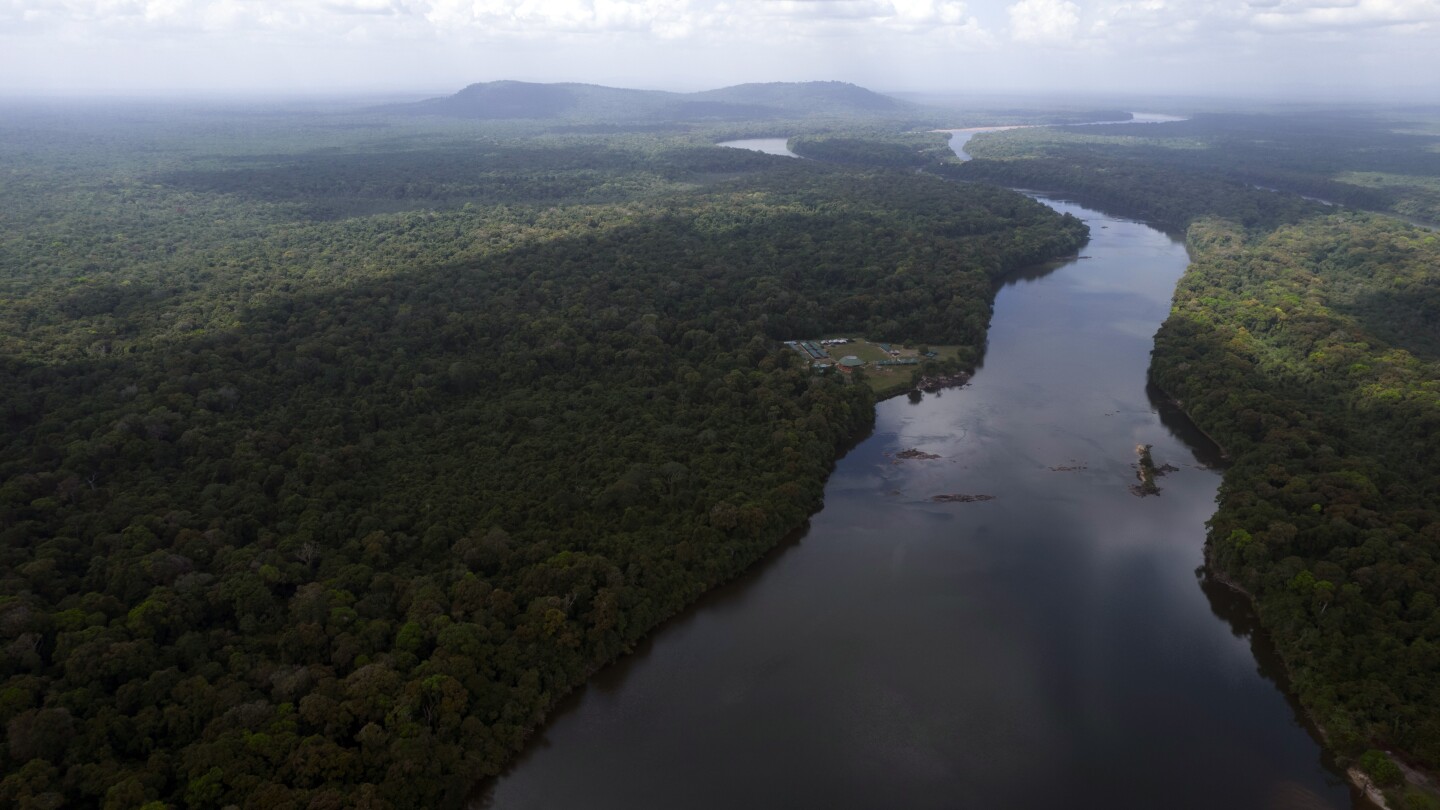GEORGETOWN, Guyana (AP) — The government of Guyana, under pressure from neighboring Brazil and a Caribbean trading bloc, agreed Sunday to join bilateral talks with Venezuela over an escalating territorial dispute.
The century-old dispute between the two South American nations recently reignited with the discovery of masses of oil in Guyana. The government of Nicolas Maduro, through a referendum last week, has claimed sovereignty over the Essequibo territory, which accounts for two-thirds of Guyana and lies near big offshore oil deposits.
Even as troops mass on both sides of the shared Venezuela-Guyana border, Guyana President Irfaan Ali said Sunday that his country will meet on the Eastern Caribbean island nation of St. Vincent on Thursday to discuss where border lines between the two nations are drawn.
But any agreement is likely to be hard won with flaring tensions on both sides.
“I have made it very clear that on the issue of the border controversy, Guyana’s position is non-negotiable,” Ali said in a national broadcast.
The boundary was drawn by an international commission back in 1899, which Guyana argues is legal and binding, while Venezuela claims is a land theft conspiracy because arbitrators from Britain, Russia and the United States decided the boundary. Among other things, Venezuelan officials contend Americans and Europeans colluded to cheat their country out of the land.
Maduro’s government said Saturday it agreed to talks to preserve its “aspiration to maintain Latin America and the Caribbean as a zone of peace, without interference from external actors.”
Venezuela had been pushing for direct bilateral talks using a clause in the old agreement, while Guyana claims the case should be decided by the United Nations’ International Court of Justice.
“In relation to our border, there is absolutely no compromise. The matter is before the ICJ and there is where it will be settled,” Ali said. “We expect that good sense will prevail and the commitment to peace, stability, the threat of disruption will cease.”
Ralph Gonsalves, prime minister of St. Vincent, will chair the meeting, while Brazil, which shares borders with both Venezuela and Guyana, and which had also placed troops on alert, will act as an observer.
Guyana leader Ali said he had also agreed to a conversation with Maduro following an emergency meeting of Caribbean leaders late Friday, where they asked for the conversation and emphasized their continued support for Guyana.
Steeped in patriotism, the Venezuelan government is seizing on the fight to boost support ahead of a presidential election among a population fed up with decades of crisis that has pushed many into poverty.
Venezuela’s government claims about 10.5 million people — just over half of eligible voters — cast ballots. It says voters approved rejecting “by all means” the 1899 boundary, turning Essequibo into a state, giving area residents Venezuelan citizenship and rejecting the U.N. court’s jurisdiction over the dispute. But Associated Press journalists and witnesses at voting centers said the long lines typical of Venezuelan elections never formed.
In 2015, major oil deposits were first discovered off Essequibo’s shore by an ExxonMobil-led consortium, piquing the interest of Venezuela, whose commitment to pursuing the territorial claim has fluctuated over the years. Oil operations generate some $1 billion a year for Guyana, an impoverished country of nearly 800,000 people that saw its economy expand by nearly 60% in the first half of this year.
While Guyana’s oil industry continues to boom, Venezuela’s has plummeted. Venezuela has the world’s largest proven crude reserves, but its oil industry has been crippled by years of mismanagement and economic sanctions imposed on the state-owned oil company following Maduro’s re-election in 2018, which was widely considered fraudulent.

